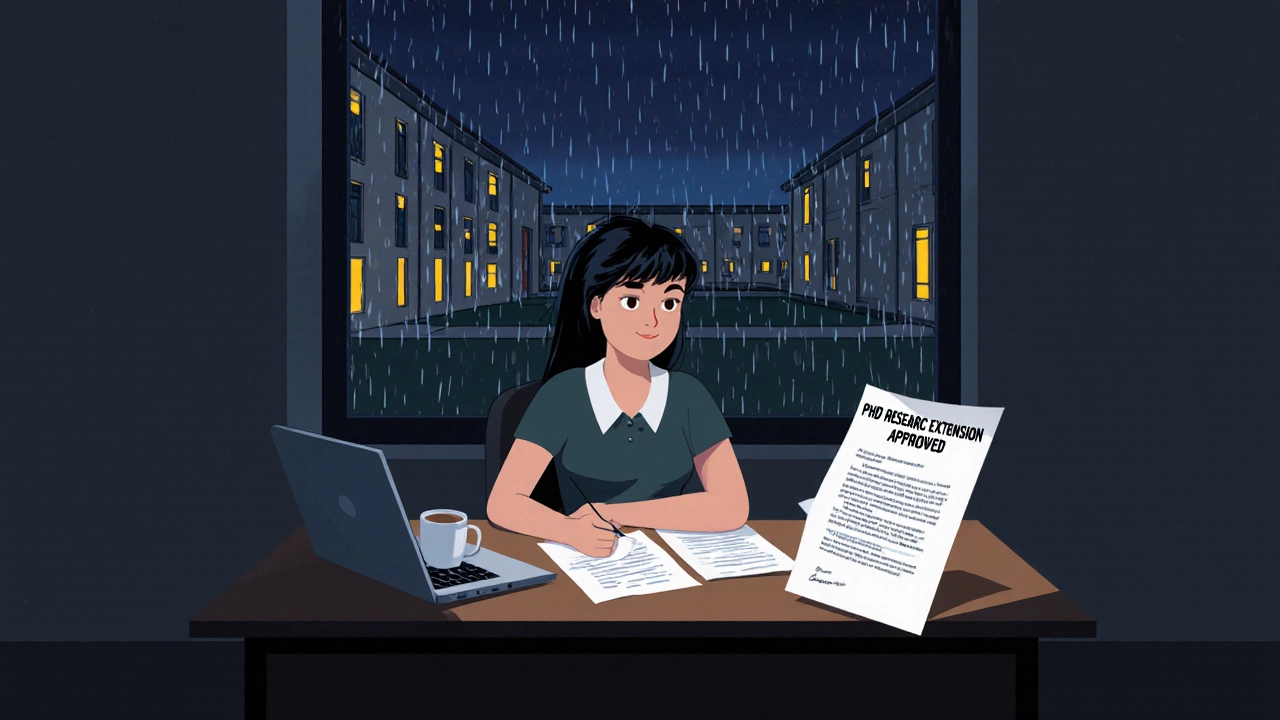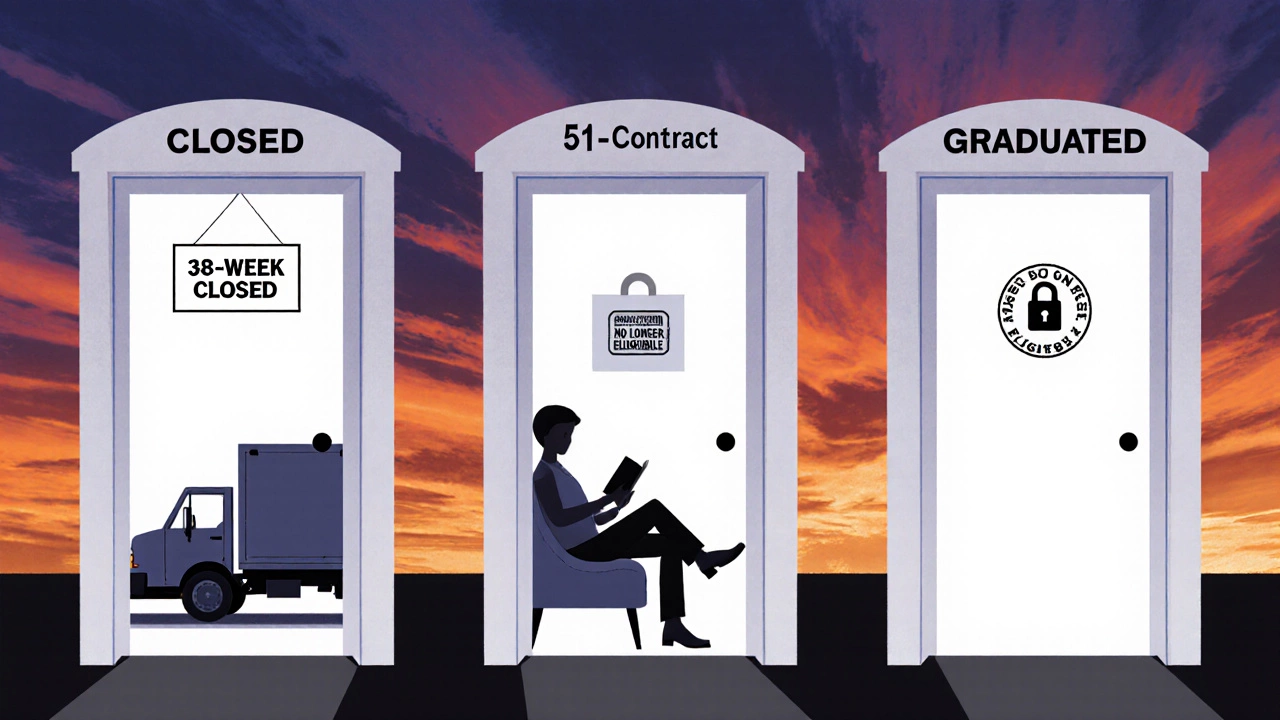Student Accommodation Duration Calculator
Most students assume student accommodation is just a place to sleep between classes - something temporary, something you pack up and leave after finals. But how long can you actually stay? The answer isn’t as simple as "until June." It depends on your contract, your university’s policies, and even the type of accommodation you’re in. Some students stay for years. Others get kicked out the day after their last exam. Here’s what really happens.
Typical Lease Lengths: One Academic Year or More?
Most student accommodations - whether it’s a university-run hall or a private student housing complex - offer contracts that match the academic year. That usually means September to June, with move-in dates starting in late August and check-out by mid-June. But this isn’t universal.
Some private providers, especially in cities like London, Manchester, or Birmingham, offer 51-week or even 52-week contracts. These are marketed as "all-year" lets and include summer months. They’re more expensive, but they’re ideal if you’re staying in the city for internships, part-time jobs, or research projects. If you’re on a 51-week contract, you can’t just walk out in July without paying the rest of the rent - you’re legally bound.
On the flip side, some universities offer 38-week contracts that end in May. These are common in older, on-campus halls. If you’re on one of these, you’re expected to leave by late May, even if your exams are in June. You’ll need to find somewhere else to stay until your final grades are released.
What Happens If You’re a Postgraduate Student?
Postgrads often assume they’re treated the same as undergrads. They’re not. Many universities reserve student accommodation primarily for undergraduates. Postgraduate students usually get priority for housing only if they’re in their first year of a taught master’s program. After that, options shrink fast.
Some universities offer extended stays for postgrads doing research - especially PhD candidates. These aren’t automatic. You have to apply separately, often months in advance. You’ll need proof of enrollment, a letter from your supervisor, and sometimes proof that you don’t have other housing. Even then, you might only get a room for 12 months, not the full length of your degree.
If you’re doing a two-year master’s, don’t assume you’ll get to stay the whole time. Most contracts reset after year one. You’ll have to reapply, and there’s no guarantee you’ll get the same room - or any room at all.
Summer Breaks: Can You Stay Over?
Summer is the biggest gray area. If you’re on a 38- or 40-week contract, your room is likely given to another student - maybe an international student arriving early, or a summer school participant. You’ll be told to leave, and you’ll have to pay for storage or move your stuff out.
But if you’re on a 51-week contract, you’re allowed to stay. That’s the whole point. Some students use this time to work internships, do research, or even travel and come back to the same room. Others use it to avoid the hassle of moving twice a year. The downside? You’re paying rent for months you’re not in class. It’s not cheap.
Some private providers offer summer-only contracts - but these are rare and usually more expensive per week than annual ones. You’re better off negotiating a short-term extension if you already have a room.

What If You Need to Stay Longer Than Your Contract?
Sometimes life doesn’t follow the calendar. Maybe your thesis is delayed. Maybe you’ve got a job interview in town next month. Maybe your visa is still being processed. What then?
Most student housing providers allow short-term extensions - usually up to four weeks - if you request it in writing and there’s availability. You’ll pay a daily rate, often higher than your normal weekly rent. Some places charge you the full weekly rate even if you’re only staying three days.
Don’t assume you can just stay. If you overstay without permission, you could be locked out. Your belongings might be moved or even discarded. Universities have strict policies about this. One student in Glasgow lost all her textbooks because she stayed three days past her check-out date and didn’t respond to emails.
Graduation Day: When Does It All End?
Graduation doesn’t automatically extend your tenancy. In fact, most contracts end on the day you officially graduate - or within 48 hours after. Some places give you a grace period of up to a week. Others kick you out the next morning.
Here’s the reality: once you’re no longer a registered student, your right to live in student accommodation disappears. Even if you’re still in town, waiting for your degree certificate, or attending the ceremony, you’re no longer eligible. Student housing is not designed for alumni.
If you’re planning to stay in the city after graduation, you need to start looking for private rentals at least three months before your contract ends. Many landlords won’t rent to someone who just graduated unless they have a steady income. A part-time job during term time won’t cut it. You’ll need payslips, a job offer, or a guarantor.
What About International Students?
International students face extra hurdles. Many visas require you to leave the country within 30 days after your course ends. But some students stay longer to look for work under the Graduate Visa (UK), or to prepare for a new program.
Student accommodation won’t be your solution. Most providers require proof of current enrollment. Once your visa status changes, your tenancy becomes invalid. You could be evicted even if you’re still paying rent.
If you’re planning to stay after your visa expires, you need to find a private rental and apply for a new visa type - like a Skilled Worker visa - before your student visa runs out. Don’t rely on your accommodation provider to help you navigate immigration rules. They’re not equipped to.

What to Do When Your Time Is Up
If you’re running out of time in student housing, here’s what works:
- Start looking for private rentals before your contract ends - not after.
- Use student housing portals like Unihomes, Student.com, or UniDays to filter for post-grad options.
- Ask your university’s housing office for a list of landlords who rent to recent graduates.
- If you’re still in the city, consider a short-term Airbnb or serviced apartment for 1-2 months while you search.
- Get a guarantor - many landlords require one if you’re new to the rental market.
Don’t wait until your last week. The best properties get snapped up fast. And if you’re leaving the country, make sure you’ve cleared your room, returned keys, and settled any bills. Unpaid rent or cleaning fees can show up on your credit report - even if you’re overseas.
Common Mistakes Students Make
- Thinking their contract automatically renews - it doesn’t. You have to sign a new one.
- Believing they can stay because they’re "still a student" - if you’ve finished your course, you’re not.
- Assuming summer is free time - if you’re on a short contract, you’re expected to leave.
- Not reading the fine print - some contracts say you can’t stay past graduation even if you’re re-enrolling next year.
- Leaving things behind - you’ll be charged for removal, and sometimes your stuff gets thrown out.
One student in Leeds left a guitar, three suitcases, and a year’s worth of notes in her room. She got a £450 bill for "unauthorized items retained." She never got any of it back.
Final Tip: Know Your Contract Before You Sign
Before you sign anything, read the terms. Look for these key phrases:
- "Contract ends on [date]" - that’s your hard stop.
- "Tenancy only valid for registered students" - that means no extensions after graduation.
- "No summer stay unless specified" - if it’s not written, you can’t assume it’s allowed.
- "Early termination fees" - some places charge if you leave before the contract ends.
Ask for a copy of the tenancy agreement in writing. Don’t rely on what a rep tells you over the phone. If they won’t give you the document, walk away. That’s a red flag.
Can I stay in student accommodation after I graduate?
No. Student accommodation is only for current students. Once you graduate, your tenancy ends - usually within 48 hours. You must move out or risk being charged extra, locked out, or having your belongings removed.
Do I have to leave during summer break?
It depends on your contract. If it’s a 38-week or 40-week contract, yes - you’re expected to leave. If it’s a 51-week contract, you can stay. Always check your contract before assuming.
Can I extend my student accommodation contract?
Sometimes, for up to four weeks, if there’s space and you request it in advance. You’ll pay a daily rate, often higher than your normal rent. Extensions are never guaranteed.
What if I’m doing a postgraduate degree?
You might get housing for your first year, but not automatically for the second. You’ll need to reapply, and priority usually goes to undergraduates. Some universities offer extended stays for PhD students, but you must apply early and prove your enrollment.
Can I stay in student housing if I’m on a gap year?
Only if you’re still officially enrolled. If you’ve taken a break from studies and aren’t registered for classes, you lose your right to live in student accommodation - even if you plan to return next year.
